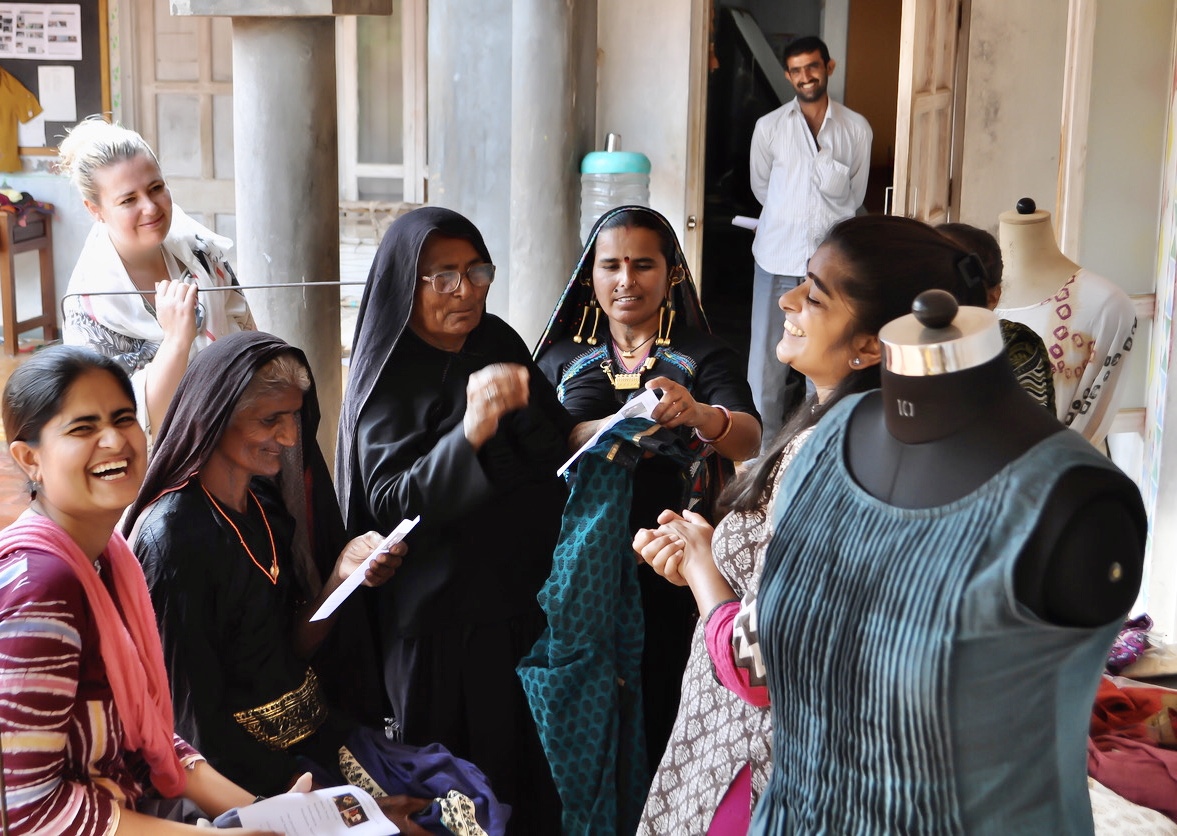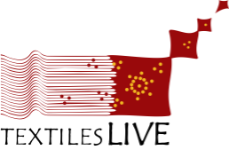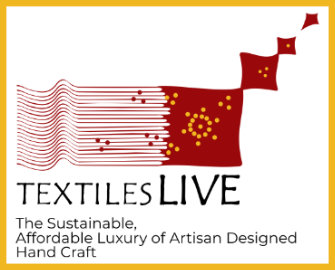Research and Pedagogy
 Kala Raksha Vidhyalaya women’s class, 2013.
Kala Raksha Vidhyalaya women’s class, 2013.
Research underpins pedagogy. By the time I developed a curriculum for design for artisans through an Ashoka Fellowship in 2003, I had been researching artisans 3 decades, through college courses, books and field work, then working hands-on. The practical research was invaluable.
The foundation of a curriculum is a goal. Here we confront a basic dilemma: student engagement is critical, but students do not know what they don’t know. I set my goal as increasing income, social status, and independence- one the artisan community articulated.
Researching, I questioned further.
“Don’t teach us embroidery,” artisans answered. “That’s what we do. Teach us something useful.”
So I also observed and hypothesized. I refined the goal with research on historical relationships between artisans and their clients and changes in the craft ecosystem. To re-build lost connections, artisan students needed to know about current markets, and value.
I founded the structure and methodology of the course on the strengths, interests, and limitations I perceived in artisans- ready to adjust the experiment based on results. To ensure that learning took place I created an environment that was safe and nurturing. And to ensure that learning would continue after the course, I included analysis and discussion as part of every activity. Listening, mutual reasoning, respecting differences would help students grow as people. I rooted the course in respect for traditions. I wanted artisans to value what they already know.
There is no substitute for being on the ground. I researched throughout the courses. Education and research intertwine when everyone feels comfortable, and everyone is engaged in analysis and discussion. Teachers, students, staff, and I all learned together, and we adapted courses as we went.
Several years into the program, when graduates began to know what they knew and became successful, I engaged them to further refine goals and methods to what they deemed most relevant. And each year I invited the alumni to seminars on topics I thought needed discussion. I wanted to learn from them- more research!
Education- like craft- must be organic and living. Only when it is relevant is it effective.



